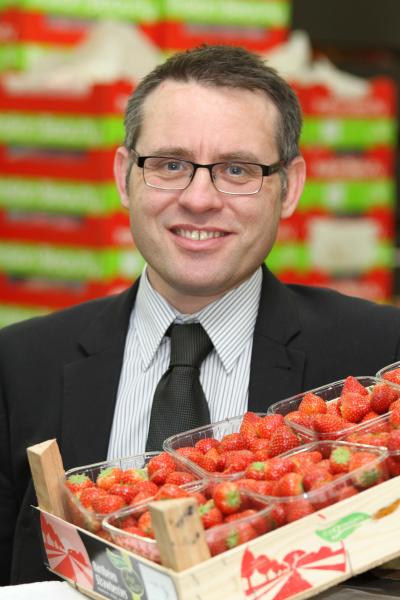Value added

Given that they produce the very food that sustains the nation, there can be little argument about the value that farmers add to the nation by their activities on the land. As well as providing the food on Britain’s plates, they are also responsible for the stewardship of great swathes of our country. The value that the agricultural community adds is unarguable.
More ambiguous, however, is the value that farmers add to themselves, their families and their businesses as a result of all this activity. Often at the mercy of fluctuating commodity prices, completely out of their control, many farmers must question why they bother.
However, the fact is that there is plenty of value to be had - but getting hold of it requires a rethink about what farming is all about.
In the public’s perception, agriculture is at arm’s length, something which happens hidden away in the countryside, and which many people struggle to identify with. The production of food, however, is something much closer to their hearts (and stomachs); they can see why this industry is important to them.
My suggestion is that farmers need to have a similar mindset; too many forget that they are in the food business, producing vital ingredients to feed the nation – not just agricultural commodities to disappear out of the farm gate in a lorry. And it is those farmers who have realised the added value in producing food (over ‘pure’ agriculture) who are thriving, and finding some of that value being retained in their businesses.
Of course, diversification from ‘pure’ agriculture on farms is nothing new. More and more framers are opening up additional revenue streams such as holiday lets, or solar and wind energy generation. But even this most recent of developments is essentially producing a commodity, which is sold on at a fixed price.
Food production remains at the core of most farmers’ activity, and so it is here that they must find the value to allow their businesses to grow and prosper. On top of the core activity of growing crops or raising animals, farmers need to find ways of achieving ‘food diversification’ – activity which adds value over and above traditional farming.
The opportunities for achieving this are widespread, from basic retailing activity such as farm shops, to the vertically-integrated production of end-user food from farm products, such as cheese-making.
As well as adding value to what is produced on the land, this kind of enterprise has two further benefits: it can often help with inter-generational issues in family businesses (in many cases, the diversification is driven by younger generations, complementing what the older generation is doing on the land itself), and it mitigates risk, by providing wider markets for a farm’s produce.
The fact is that most farms simply can’t roll along as they have always done, and they can no longer live off land values. Like it or not, there has to be a move away from a focus on traditional farming, and towards farms being, and being seen as, centres of food production.
The environment is certainly ripe for this. A renewed public interest in local provenance of what they eat, driven largely by a succession of food scandals, means that there is certainly a market out there for farm-origin end-user foods.
Many of our region’s farms are now successfully dealing with supermarkets which are finally open to building mutually beneficial relationships with individual farm and food production businesses.
Farmers should be proud of being farmers; but they need to be equally proud of being food producers, because that is what will resonate with the market, and, more importantly, that is what will add value to their businesses – and consequently to the agricultural sector and to the land.
- Justin Wright heads chartered accountants Lovewell Blake’s specialist Food and Drink Team. Contact him at j.wright@lovewell-blake.co.uk.













































